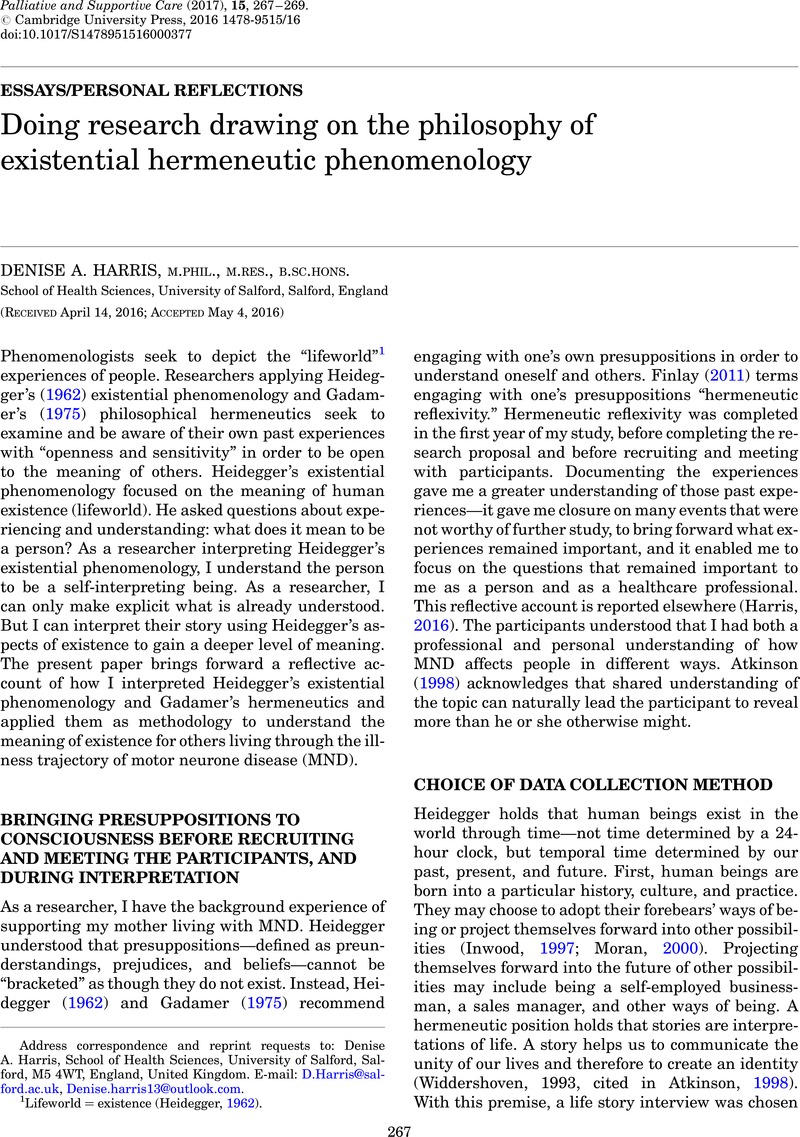Crossref Citations
This article has been cited by the following publications. This list is generated based on data provided by Crossref.
Nyblom, Stina
Arnby, Maria
Molander, Ulla
and
Benkel, Inger
2021.
End-of-Life Experiences (ELEs) of Spiritual Nature Are Reported Directly by Patients Receiving Palliative Care in a Highly Secular Country: A Qualitative Study.
American Journal of Hospice and Palliative Medicine®,
Vol. 38,
Issue. 9,
p.
1106.
Nyblom, Stina
Molander, Ulla
and
Benkel, Inger
2022.
End-of-life dreams and visions as perceived by palliative care professionals: A qualitative study.
Palliative and Supportive Care,
Vol. 20,
Issue. 6,
p.
801.
Jedličková, Lenka
Müller, Michal
Halová, Dagmar
and
Cserge, Tereza
2022.
Combining interpretative phenomenological analysis and existential hermeneutic phenomenology to reveal critical moments of managerial lived experience: a methodological guide.
Qualitative Research in Organizations and Management: An International Journal,
Vol. 17,
Issue. 1,
p.
84.
Öhrling, Charlotta
Benkel, Inger
Molander, Ulla
Sernbo, Elisabet
Olsson, Annika
and
Nyblom, Stina
2023.
Sharing Bad News: Communication Between Patients and Their Loved Ones in a Palliative Care Context.
American Journal of Hospice and Palliative Medicine®,
Vol. 40,
Issue. 10,
p.
1141.
Andrea Harris, Denise
2023.
Palliative Care - Current Practice and Future Perspectives [Working Title].





